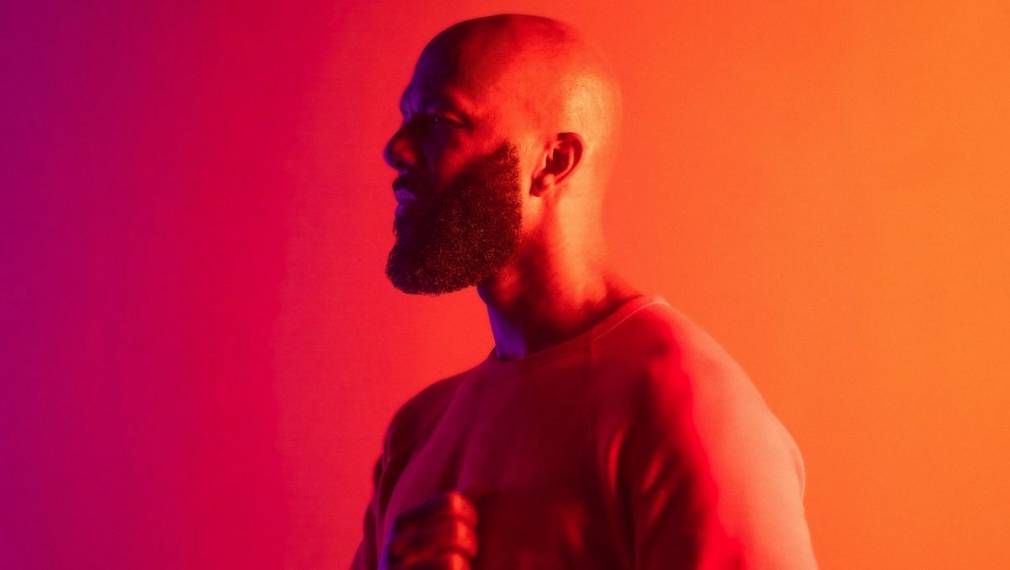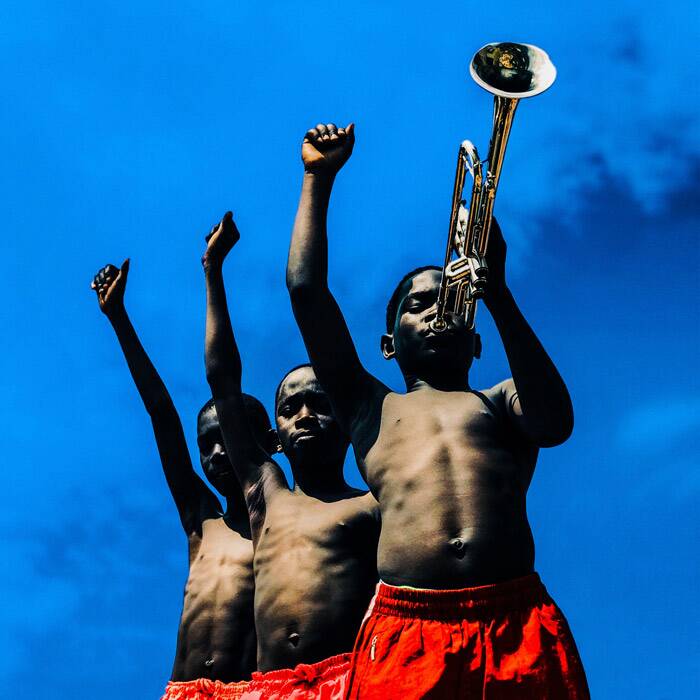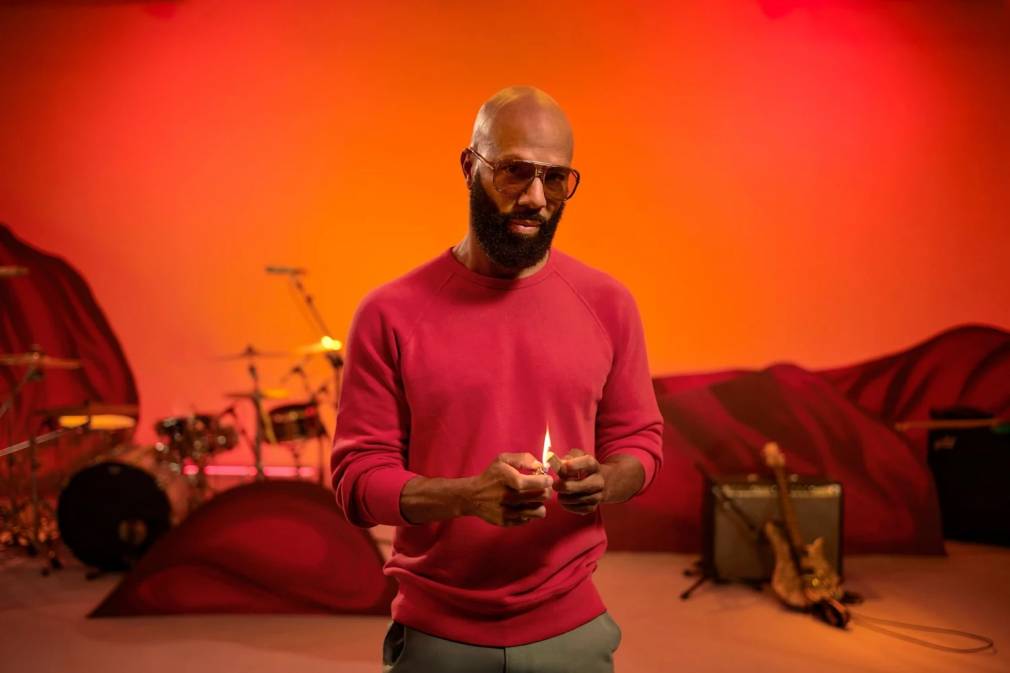Like Kanye West and Michelle Obama, Common grew up on Chicago’s South Side. It is in these same neighborhoods south of 95th St. that the young Barak Obama made his name and launched his career. Where the winter winds are freezing and bullets fly. So it’s not surprising that the Black President and his First Lady have remained close to the classy, impeccably dressed and aware rapper who knows so well how to put words to the rage people feel today, who sings a cool and composed version of the Black American Dream. Shortly before the end of Obama’s second term, the rapper Lonnie Rashid Lynn aka Common, who is also an actor and a writer, was one of the last persons invited by the presidential couple to the White House, for a special session with NPR in the library room.
Common kind of blue
Common has always maintained that the “political revolution” in America can come only from the Democratic Party… He even sang a duet with John Legend at the 2020 Democratic National Convention in homage to the national hero of the anti-racist struggles, John Lewis, who passed away last year. During the last presidential race, Common’s heart was clearly blue rather then red (the color of the Republican Party), but the singer soberly incited people to vote rather than telling them who to vote for. Nevertheless, his song “A Place In This World“, on his new album
A Beautiful Revolution Pt 1, was used by Michelle Obama for the “When We All Vote” campaign. And which incited thousands of young people to register to vote, in Georgia in particular, a swing state that helped win the election.
But after four years of upheaval riddled with racist crimes and social injustices due to an outrageous presidency, Common has now chosen to promote optimism and unity in this album which, despite nods to the Black Lives Matter movement and the injustices he denounces, prones a calm revolution based on soul, aware hip hop, and jazzy influences… As if the horizon is finally clearing after these recent years of turmoil and unrest. The album can be heard as the soundtrack of a renewal, of a refound hope for social and racial justice: the sounds coming after the unpunished crimes and the emotions aroused by the murder of George Floyd in Minneapolis by a policeman.

Transforming pain into hopes
The poetess Jessica Care Moore is heard at the beginning of the album with words that combine peripheral cries with clearer voices. “It is music to uplift, heal, and inspire listeners dealing with racial injustices as well as other social injustices. It’s affirmation. It’s recognition. It’s elevation. It’s music to go with a movement. Because the truth is, there is still so much work to do. Regardless of the outcome of the election, we need to make sure things do not return to the status quo. The intention of A Beautiful Revolution Pt. I is to channel all of our pain and outrage into something productive, inspirational, and good. It’s to help lead a movement into our next phase of the work to be done.” – Common
In this new album, which can been seen like a first chapter, Common summarizes what will happen: “change is beautiful and it’s painful“.
Ever since his first album Can I Borrow A Dollar? in 1992, the rapper now, in his fifties, has remained angry, and continues to draw from the musical sources that have always inspired him: the flow of the Last Poets, the spacy and luminous soul of the Soulquarians years, and the heyday of the nu soul hip hop period spent in Jimi Hendrix’s Electric Lady Studio in New York with the QuestLove, Erykah Badu and D’Angelo crews at the end of the 1990’s. And which peaked in the year 2000 with three key albums recorded at the same time, Voodoo by D’Angelo, Mama’s Gun by Erykah Badu and Like Water For Chocolate by Common. In 2004, Common prophetically recorded “Impeach [Bush] and elect Obama” in a remix of “Why” by Judkaiss, four years before Obama’s election. Years have gone by and racial tensions have not ceased…
But Common now demands “the right to write our own history” in capital letters, and with the help of guests who have made major contributions to American music: Black Thought (singer with the Roots), Chuck D (Public Enemy), Lenny Kratvitz and the legendary Stevie Wonder… With his mercilessly melodic voice, Stevie simply says: We are American history » like a peaceful echo of what Common develops in another evocative song: A Place In This World. Common proclaims “I am from the Bob Marley party“, one that wants everything to finally go well because, as he puts it, “I know there’s light at the end of the struggle. Revolution and love is like a couple.” This last statement is perhaps the key to Common’s vision: an intimate and personal revolution where ultimately love nourishes the struggle and the victories in particular, much more than rage and hate ever can.
Metamorphosis in a period of upheaval
In 2016, he released a new album close on the heels of the new wave of hip hop soul loudly proclaiming black pride, with expanded musical horizons and new depth. The title of his album Black America Again sounded like an explicit response to Trump’s slogan, “Make America Great Again”, and an echo both of D’Angelo’s Black Messiah and the album To Pimp A Butterfly by Kendrick Lamar (with its album cover showing a black crowd on the White House lawn), released shortly before.
Three years later, in 2019 in a transformed America, Common released his twelfth album, Let Love, at the same time as his autobiography Let Love Have The Last Word, two complementary works that transcended its rebellions with a wise and mystical serenity. Common took the opportunity to highlight the importance in his life of the Black Church, the Bible, therapy, and figureheads like Martin Luther King, Angela Davis, Mohammed Ali and James Baldwin… Still in great physical shape and looking younger than his years, he could easily have kept hidden his fragilities. And yet he chose to reveal his secret wounds, even shaking up the old ways of thinking in Chicago neighborhoods and elsewhere, by questioning love of self and self-image, and breaking taboos concerning sexual abuse and the the necessity of therapy in places where “it is shameful to talk to a stranger about your problems“. In “Memories of Home”, Common revealed a long-suppressed secret: the sexual abuse he suffered at the age of 9 by a cousin. With this revelation his beautiful revolution was already in motion.
These days, Common prefers the aroma of palo santo incense burning in yoga studios to the smell of big blunts smoked on street corners. He even posts videos about healthy living on his internet site, filmed in his kitchen. In New Yorker magazine he revealed that his path to wellness started after his breakup with Erykha Badu. Living proof that a painful experience can lead to personal well-being, and that at the end of a long dark tunnel comes a light: from one’s own soul. Revolution!

